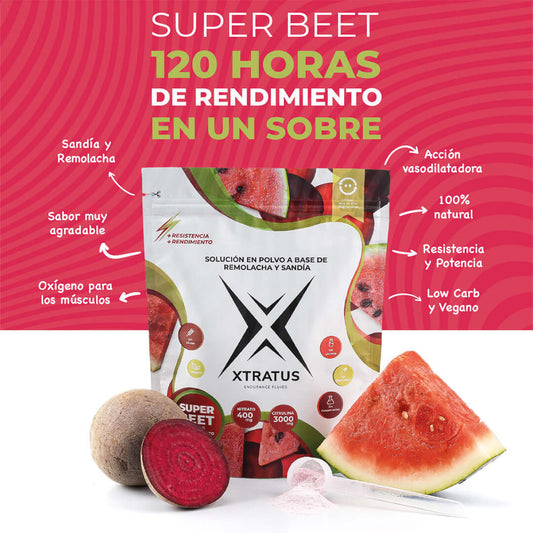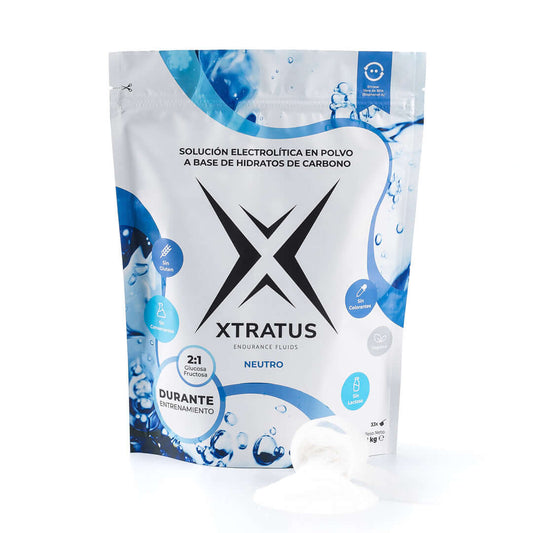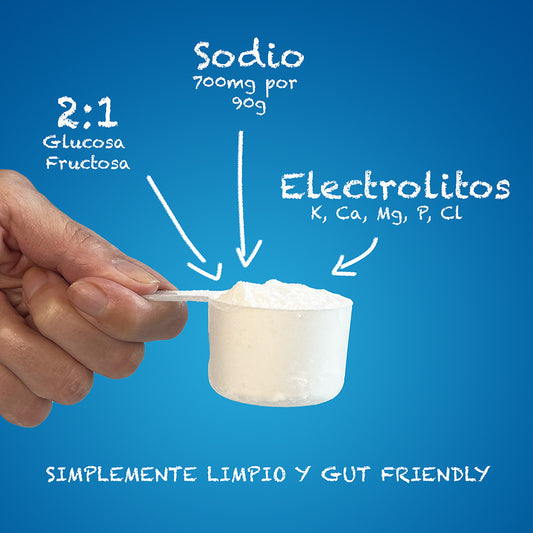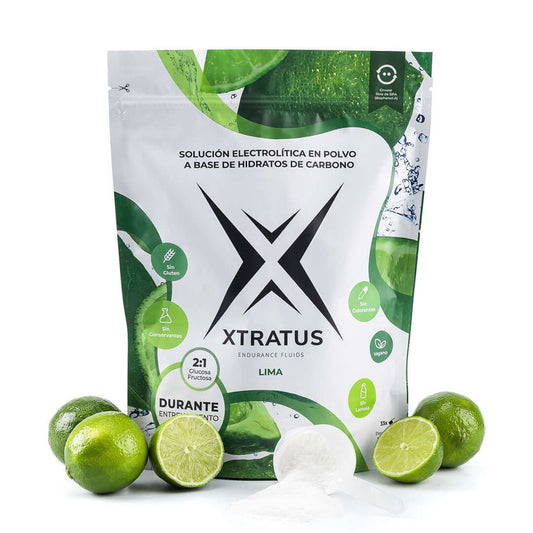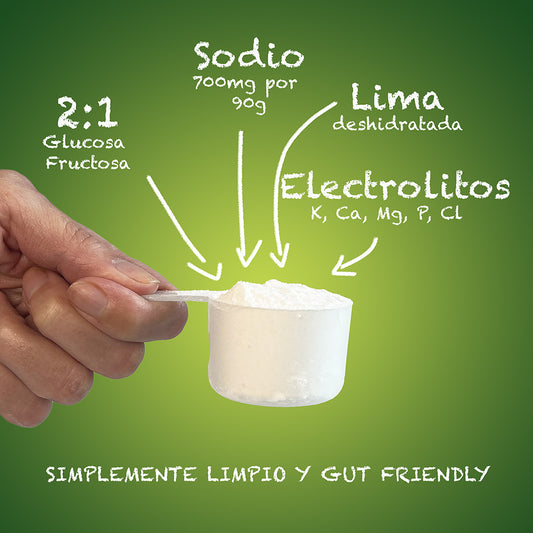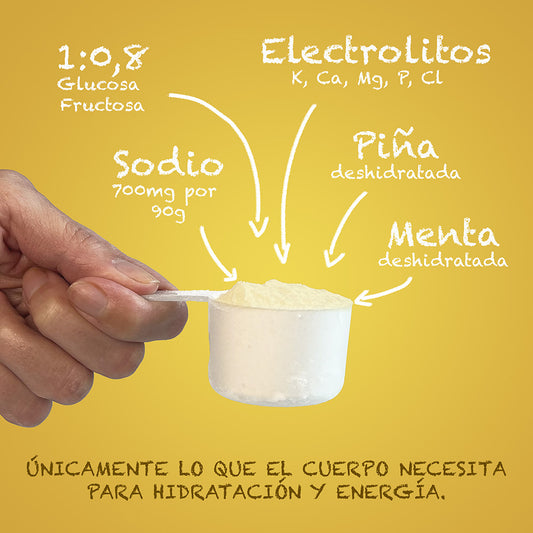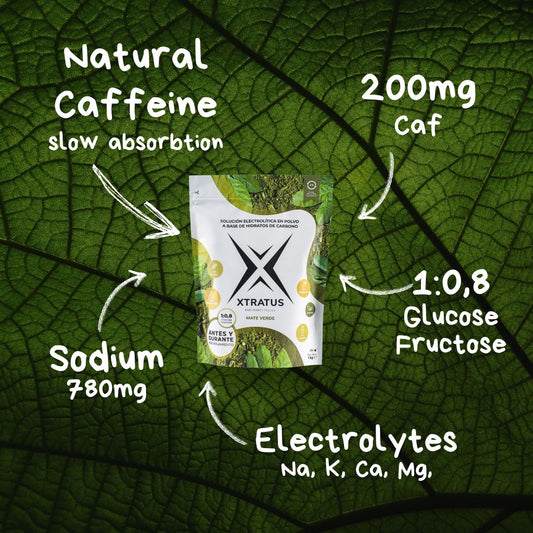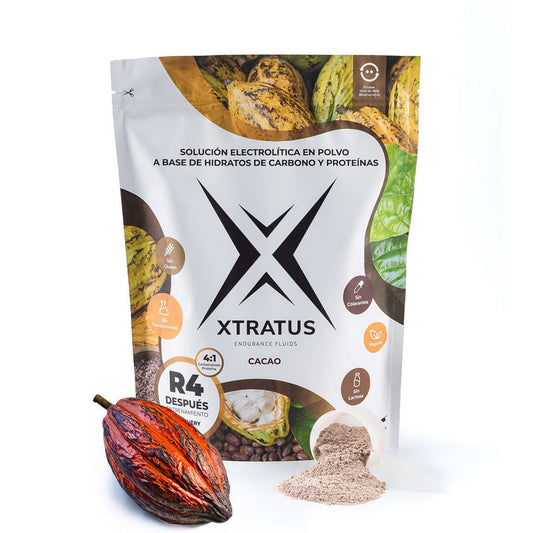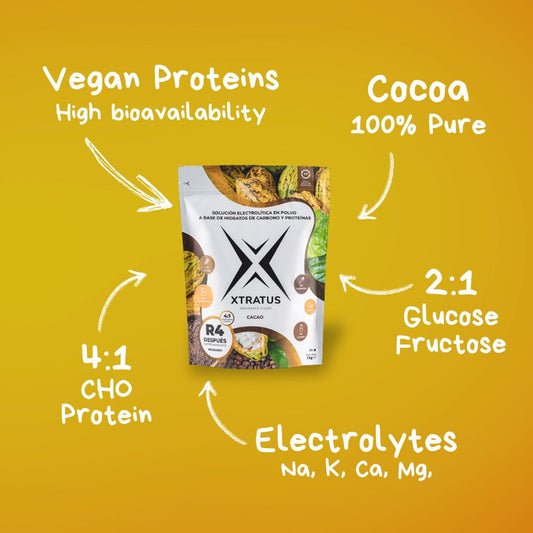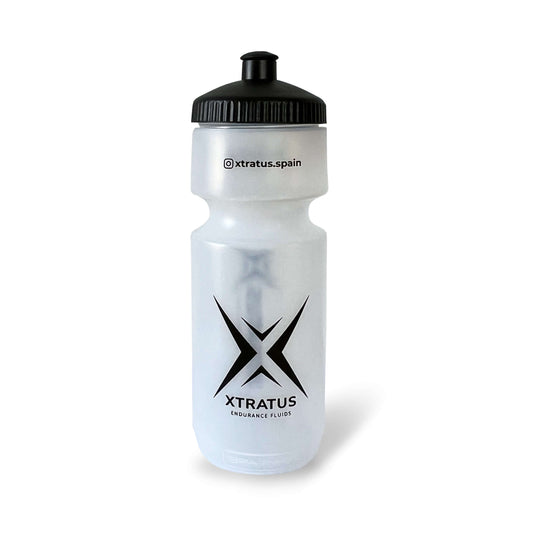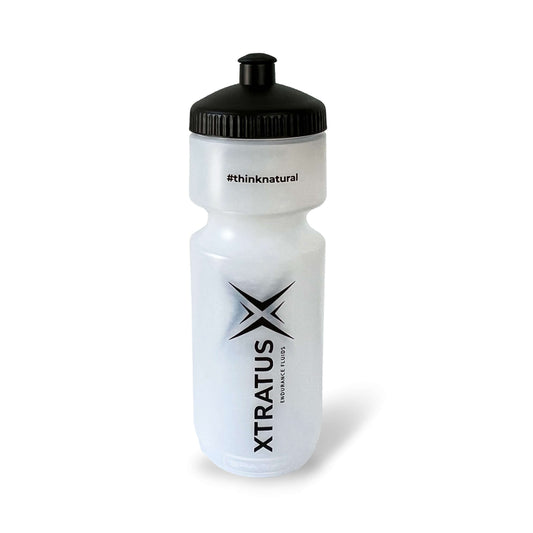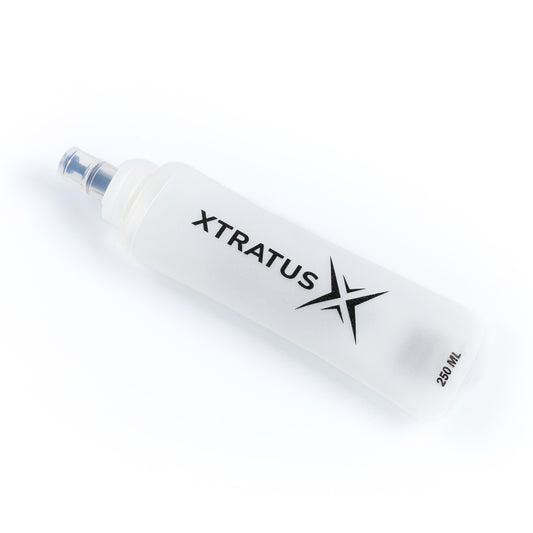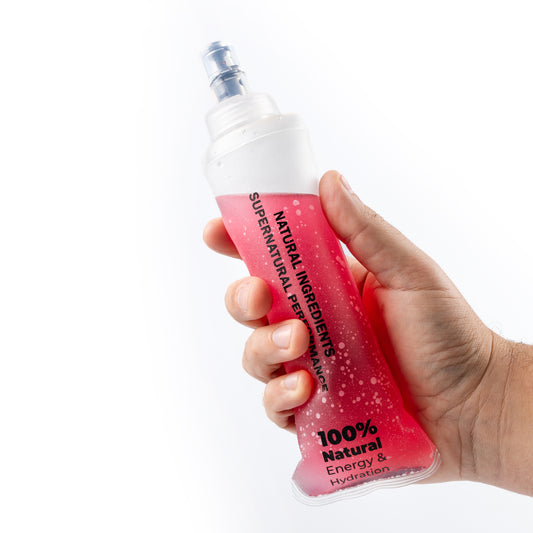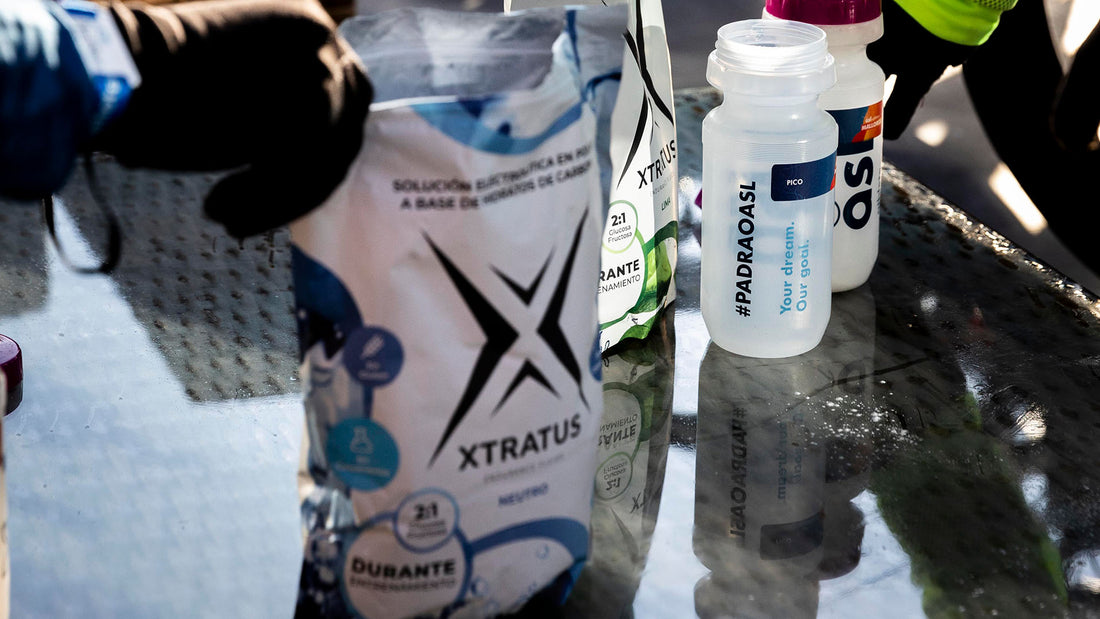
During training: attention to your nutrition strategy.
Isotonic drinks, gels, bars, bananas, dates, guavas...
If you practice any endurance sport, you've probably already been told that you need these products to stay on your feet.
But are they really indispensable?
In this article, we'll analyze when and how to use them to optimize performance.
Carbohydrates: Fuel for Exercise
Carbohydrates are, without a doubt, your main source of energy during exercise, especially in high intensity and long duration activities.
We obtain them from foods such as cereals, fruits and tubers, and they are stored in the body in the form of glycogen in the liver and muscles.
During exercise, this glycogen is broken down into glucose, providing energy for the muscles and helping maintain performance.
However, Glycogen stores are limited and are depleted as activity progresses, depending on factors such as duration, intensity of exercise, training level and previous nutrition.
When glycogen stores are depleted, the body can turn to fat for energy, but this process is not as efficient during medium- or high-intensity exercise.
Therefore, in certain situations, It is important to consume carbohydrates during exercise to maintain energy levels and delay fatigue.
When and how much should I consume carbohydrates during exercise?
The amount of carbohydrates you should consume during exercise depends on its duration.
As time increases, the need to replenish energy also increases, as glycogen stores decrease.
- 30-75 minutes: In short sessions of up to 75 minutes, carbohydrate intake isn't necessary if you've had a proper nutrition beforehand. With full glycogen stores, your body should perform well during this time. Note: Carbohydrate mouthwashes have been shown to activate neural signals that tell the brain that energy is available, which can improve performance without ingesting carbohydrates and prevent gastrointestinal discomfort.
- 1-2 hours: From the first hour onwards, carbohydrate consumption becomes beneficial, with an intake of around 30 g per hour to improve performance.
- 2-3 hours: For exercises of this duration, it is recommended to increase intake to 60 g per hour to avoid fatigue and maintain optimal energy levels.
- More than 2.5 hours: During ultra-endurance activities, glycogen stores will be practically depleted, so it's necessary to ingest up to 90 g of carbohydrates per hour to sustain the effort. An interesting fact: it has recently been observed that some professional athletes, with highly trained gastrointestinal tracts, consume up to 120 g of carbohydrates per hour. However, this practice requires further scientific studies to confirm its efficacy and safety in other athletes.
Saturation of carbohydrate transporters
For carbohydrates to provide energy during exercise, they must be digested and absorbed through the gastrointestinal tract.
The main glucose transporter (SGLT1) can absorb up to 60 g per hour. Exceeding this amount can saturate it, hindering absorption and causing discomfort.
To ingest more than 60 g/h without problems, it is recommended to combine carbohydrates that use different transporters, such as glucose and fructose, in a proportion of 2:1 or 1:0.8 to optimize absorption and avoid gastrointestinal problems.
Below is a summary table of what was previously discussed:

(adapted from: Jeukendrup, A. (2014)
Key Points to Optimize Intra-Workout Nutrition
-
Train your gut: If you've never consumed carbohydrates during exercise, start with small amounts and gradually increase them based on how you feel. It's essential to train your gastrointestinal tract to avoid digestive problems.
-
Personalization: Nutritional needs vary depending on the discipline, climate, individual tolerance, and digestive training. Consulting a professional will allow you to tailor your nutritional strategy to your specific needs.
-
Pre- and daily nutrition: Make sure you maintain proper nutrition before training or competition, as well as throughout your daily routine. This ensures your glycogen stores are full, which helps you perform well, recover better, and reduce the risk of injury.
-
Test what you are going to use in competition: Never introduce anything new on race day. Practice the products you plan to use during your workouts to ensure your body tolerates them well and avoid surprises.
Jeukendrup, A. (2014). A step towards personalized sports nutrition: carbohydrate intake during exercise." Sports Med 44 Suppl 1: 25-33, 2014.
by Alan Chamah - Sports Nutritionist


